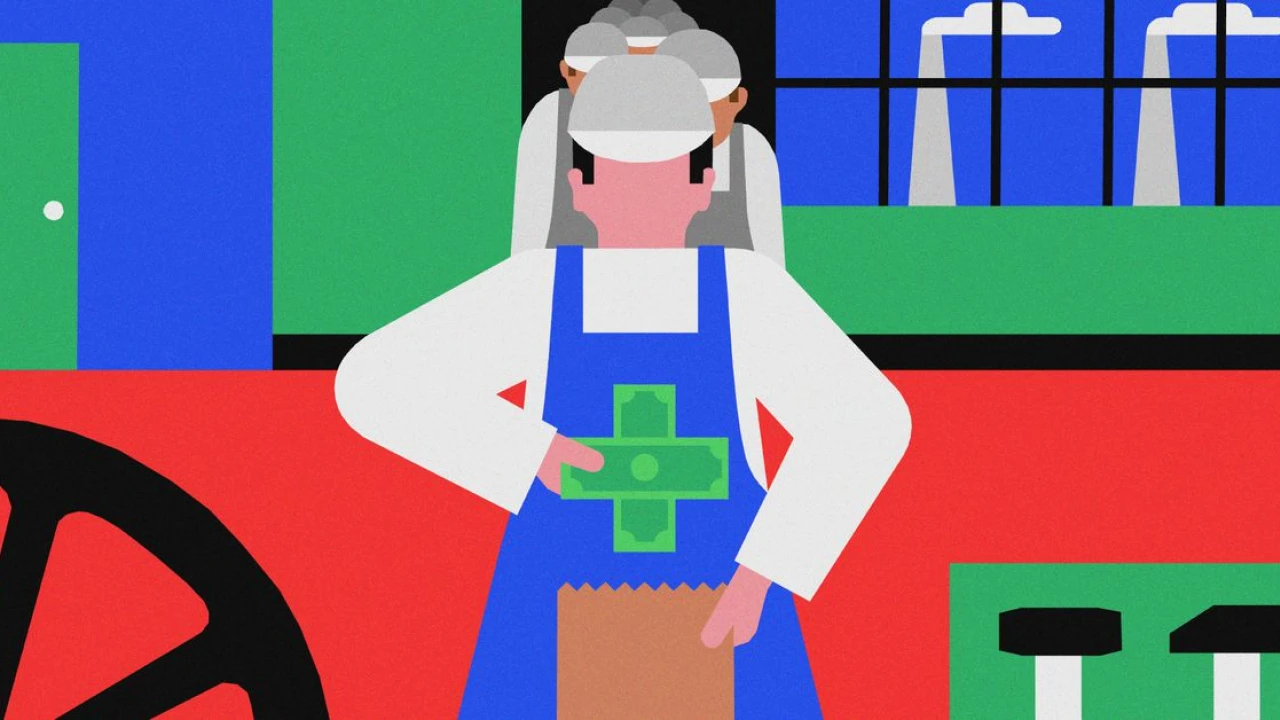Regional
Why you’re stuck with your company’s health insurance plan
Nobody would build a health insurance scheme like America’s on purpose.

In the coming weeks, the majority of Americans will engage in a bizarre, mildly terrifying, distinctly American seasonal ritual. I refer, of course, to open enrollment — the time when you sign up for your health insurance plan.
If you’re covered by your employer, it’s time for confused emails and phone calls to your human resource department. If you sign up for your own coverage, it’s time to puzzle through the benefits you can get through the Affordable Care Act or Medicare.
It might also be a time when you ask yourself why it has to be this way. Look around the world, as Vox did a few years ago, and it’s clear there are much simpler ways to run a health care system. Some rich countries have all public insurance, some use private coverage, but they have a few things in common: They insure pretty much everybody, their systems cost less money, and whether you have health care has nothing to do with whether you’re employed. Open enrollment, if it exists at all, is a much simpler exercise.
In the United States, however, 57 percent of Americans under 65 get insurance through their jobs, and attempts to reform that system have all failed. The Affordable Care Act chose to build around it rather than abolish it. The health care industry has proven effective at protecting itself. And I have seen enough focus groups discussing ideas like Bernie Sanders’s Medicare-for-all plan to attest that, while people might not be very happy with the insurance they have now, they are also wary of change.
America has been left with a dominant form of health coverage that is just effective enough not to collapse but still leaves patients stuck with plenty of problems.
And lately, those problems have been getting worse.
Over the past two decades, workers have been paying more and more of the costs of care. More of their paychecks are being eaten up by premiums. They are obligated to pay more out of pocket for the medical services they receive. Surveys have found more than one in three Americans regularly avoid medical care because of the cost, including a significant portion who have insurance. One contributor to falling US life expectancy is that the US health care system trails other countries at preventing avoidable deaths and treating chronic health conditions.
“In an ideal world, that might not be the best way to organize the health care system,” Eric Toder, institute fellow at the Urban-Brookings Tax Policy Center, told me.
But it’s the system we have.
Why your job controls your health care
The modern American health system began to take shape in the late 19th and early 20th centuries. Clincial practice improved; medical schools and state licensing boards began credentialing doctors; and the number of hospitals grew. All this meant the cost of health care started to rise: Patients were more likely to receive critical care, but also to face untenable bills for that care. By 1929, US families were spending on average 5 percent of their income on medical expenses.
So during the 1920s and ’30s, some employers began offering a new benefit: health insurance for hospital-based medical services. Insuring people through their work offered two advantages that were obvious to employers, hospitals, and policymakers, Paul Starr, who wrote the seminal history The Social Transformation of American Medicine, told me.
These plans pooled together large groups of people, some healthy and others not. Health insurance would only work with a delicate mix: You need some people to pay in more than they take out because there will be those others who receive more in care than they contribute financially. They also simplified matters for insurers, who could collect premiums from one employer rather than many individuals.
Almost from the beginning, politicians weighed severing the link between employment and health care. During the Great Depression, FDR considered making national health insurance part of his signature New Deal legislation — which would have made the US a pioneer — but those provisions were nixed to prioritize the Social Security retirement and disability programs, among others.
Then, in World War II, companies’ grip on employee’s health care got firmer. The federal government established wage controls, limiting how much employers could pay workers. This left businesses competing on other forms of compensation — including health insurance. The government tacitly endorsed this tactic: It did not tax health benefits as income, while also allowing companies to deduct the cost from their taxable revenue. Enrollment in some kind of health insurance grew from some 20 million people in 1940 to more than 142 million in 1950.
It still seemed possible to disrupt the system. After the war, Harry Truman made another attempt at national health insurance, but it was scuttled over opposition to new taxes and dogged by association with left-leaning economic ideas during the Red Scare. In 1954, though, Congress enshrined into law the informal IRS policy that health insurance benefits would not be taxed. The provision now costs the federal government more than $300 billion per year. Future health reform efforts would largely attempt to work around employer-sponsored health care, rather than trying to break the link between jobs and insurance.
At the time of the Affordable Care Act, Obama acknowledged that, if he were starting from scratch, he would probably rather create a system where the government provides insurance itself. But he wasn’t starting from scratch, and he even sought to mollify people by pledging that “if you like your plan, you can keep it.”
The truth, though, is that it is impossible, under the system the US has set up, to keep your plan. If you lose your job, you lose your plan. If you change jobs, you lose your plan. Even if you never change jobs, your employer could easily decide to change insurers or adjust your benefits.
Workers find this lack of control frustrating. Many recent labor disputes have hinged on health benefits, as employees get fed up with being asked to pay more and more of their own money for medical care.
But at the same time, many Americans have also developed an aversion to change and a skepticism, enforced by years of health industry propaganda, of government control of health care. Whenever pollsters ask voters how they feel about national health insurance, support drops substantially when people are told private insurance will be eliminated. When Vox conducted focus groups on single-payer in 2018, led by opinion researcher Michael Perry, one concern we heard was from people who mostly like the insurance they have and were worried about losing it under Medicare-for-all.
So even if Americans have a pretty dim view of their health care system — 47 percent were very or somewhat negative about it in a 2022 Gallup poll, while 40 percent were positive — breaking the link between jobs and health care has proven impossible. Instead, about half the country continues to sign up for a new insurance plan every year through their employer, as they have now for decades.
It’s not ideal. But it’s just functional enough.
“It’s a real barrier to doing anything big,” John Holahan at the Urban Institute, who helped create a proposal explicitly designed not to disrupt work-based insurance, told me in 2018. “Most people with employer plans are reasonably happy with them.”
Costs for patients have been rising for decades
Employer-sponsored insurance may have become too big to fail, but it’s putting patients on the hook for more of the bill.
Because the government does not provide health insurance to working Americans, it has little ability to constrain growing health care costs. And because health insurance benefits are untaxed, employers have been partly shielded from the increasing cost of medical care. Health plans also have a limited ability to negotiate with providers and drug makers. As a result, medical prices in the US are generally much higher than they are in other wealthy economies. Employers have begun to feel more of a financial squeeze over the past two decades, but their solution to that problem has been to pass more of the costs onto workers.
Employees have seen their premiums and their out-of-pocket costs grow steadily over the years. From 2002 to 2007, workers’ contributions to their health insurance premiums went up by 50 percent. While premium increases slowed down after that, workers took on more costs in other ways. From 2012 to 2017, employees saw their average annual deductible (the amount the patient must pay out of pocket before their insurance benefits kick in) increase by more than 50 percent.
Though those trends have stabilized somewhat during the past few years, US workers now pay a significant amount of their compensation — either directly or indirectly — toward their health insurance and any medical care they need. The combined costs of premium contributions and deductible payments reached 11.6 percent of household income in 2020, up from 9.1 percent in 2010, according to the Commonwealth Fund.
In 2019, I spoke with Jessica Salfia, a teacher in Martinsburg, West Virginia, whose union had gone on strike over health care costs. When she first took the job in the early 2000s, she felt like she could go to see any doctor she wanted. The copay for an emergency room visit was just $15. But the state legislature kept cutting taxes, and, in turn, copays for teachers kept going up — eventually costing Salfia and her family $100 just to show up at the emergency room or urgent care. On top of that, their health plan started to restrict which specialists they could see. Some teachers had to travel as far as five or six hours to see their doctor. Salfia and her colleagues had little recourse except the dramatic action of a strike.
More frequently, though, the result is a phenomenon known as job lock. People take jobs they don’t want, or stay in jobs they don’t like, because if they didn’t, they could risk losing their health coverage. One in three Americans workers said in a 2021 YouGov survey that they might be willing to quit their job if they didn’t depend on it for insurance. The ACA attempted to lightly erode that connection between employment and insurance by creating a more robust individual insurance market so people could get good coverage if they left their job to, for example, start their own business. But the law’s effect on people’s career decisions has so far been limited.
In a larger sense, the US is locked into a system of employer-sponsored insurance, a quirk of history that sets our system apart from those of our economic and cultural peers.
If it were ever to change, the catalyst may not come from the bottom up. If the US were to abandon employer-sponsored insurance, it could come at the behest of employers who decide it isn’t worth the cost and the administrative hassle. While rising costs have led some companies to ponder giving up their role in the provision of health coverage, most still see offering health insurance as a net benefit to their business.
And so another open enrollment begins.
Still have questions? Dylan Scott will be chatting with Vox contributors on Thursday, October 19. To sign up, make a monthly or annual contribution to Vox before Wednesday afternoon.
-

 Regional 14 hours ago
Regional 14 hours agoMaryam grateful to people of Punjab for not supporting anarchists
-

 Business 1 day ago
Business 1 day agoPossibility of petrol shortage in twin cities, Lahore
-

 Pakistan 2 days ago
Pakistan 2 days agoPTI showdown: CIA building in Islamabad declared sub-jail
-

 Pakistan 1 day ago
Pakistan 1 day agoNon-issuance of UAE visa to Pakistanis is lie: Consul General
-

 World 2 days ago
World 2 days agoDonald Trump completes 15-member cabinet
-

 Regional 2 days ago
Regional 2 days agoCouple's wedding photoshoot in front of containers in Islamabad goes viral
-

 Business 1 day ago
Business 1 day agoBloodbath as PSX crashes amid heightened political situation
-

 Pakistan 1 day ago
Pakistan 1 day agoPresident, Interior Minister condemn attack on Rangers


























